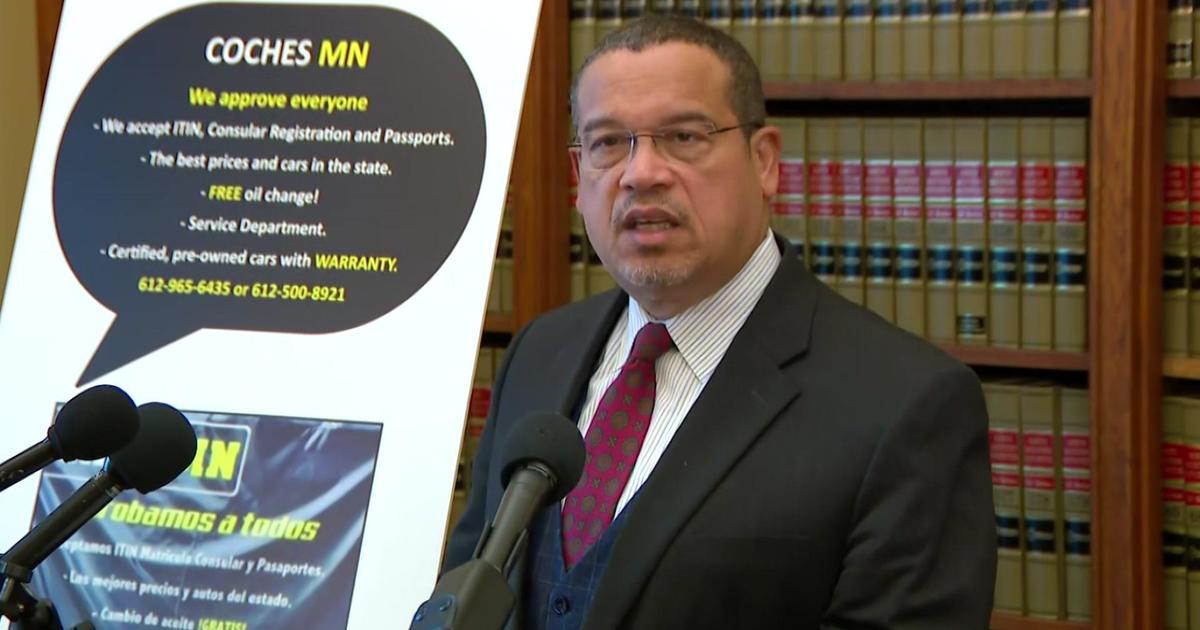Minnesota's First Posthumous Pardon Granted To Black Man, Max Mason, Convicted In Century-Old Duluth Case
MINNEAPOLIS (WCCO) -- This coming Monday will mark 100 years since the Duluth lynchings, a dark stain on Minnesota's past. And on Friday morning, the Minnesota Board of Pardons made history: It granted the state's first posthumous pardon to Max Mason.
The Minnesota Board of Pardons helped end a 100 year-old fight for justice by posthumously pardoning the man used as a scapegoat in the Duluth lynchings. Max Mason was one of several circus workers rounded up and jailed after a white woman claimed she was raped by black men.
Elias Clayton, Elmer Jackson and Isaac McGhie were lynched by a mob, while Mason was convicted and sentenced to 30 years for the rape.
"Mr. Mason deserves our mercy our clemency because we served him a tainted justice when it should have been pure," attorney Jerry Blackwell said.
Blackwell wrote the application for the pardon of Max Mason, a black man who served time for a rape allegation that three other black men paid for with their lives.
The doctor who examined the accuser never found any evidence of rape, and it was learned the teenager lied because she and her boyfriend had stayed out too late.
"A young white teenager named Irene Tusken in 1920 claimed to have been raped repeatedly by five young black men in town with the traveling circus. The story wasn't true and is widely discredited," Blackwell said. "Elmer Jackson, Elias Clayton and Isaac McGhie were three young black men among the several who were thrown in jail for the accusation and they were violently and lawlessly broken out of jail beaten and lynched from a street light pole on June 15 by a white mob in a hideous display of what's bad in humanity."
A crowd of 10,000 watched the lynching, some even posed for pictures. Mason was the man convicted and jailed for the rape, satisfying the crowd's calls for justice.
"It was in the atmosphere of racial tension terrorism and prejudice that another black circus employee named Max Mason was arrested and convicted for raping Ms. Tusken. He was sentenced up to 30 years of hard labor in Stillwater prison," Blackwell said.
He served five years and was paroled on the condition he leave Minnesota and never return.
"Never has there been a time where we must work relentlessly in our fervent pursuit to find justice than today please pardon Max Mason and begin the healing," Chief Mike Tusken said.
Letters of support for pardoning Mason came from every living past member of the pardon board, but it was the support from Duluth's police chief that meant the most.
"I have an interest in this case for the following reason I am a member of the Tusken family I serve as the police chief for the Duluth Police Department and finally its incumbent upon me as a police chief and as a citizen to seek and find justice, "said Chief Tusken.
The board of pardons unanimously decided to pardon Max Mason proving the wheels of justice are slow at times but are still turning.
Democratic Gov. Tim Walz, a member of the board, called it "100 years overdue" and said Minnesota for too long believed that lynchings "happened (only) in the Southern states."
"There is a direct line between what happened with Max Mason ... to what happened to George Floyd on the streets of Minneapolis," Walz said, referring to the May 25 death of Floyd that has become a flashpoint in a national movement against police brutality and racism.
Minnesota Attorney General Keith Ellison, who is on the Board of Pardons, also reacted to the pardon Friday.
"Justice delayed is justice denied. One hundred years late, justice has been done," Ellison said. "The Duluth lynchings are a dark stain on our history. A century later, the last few weeks have shown us that in Minnesota, we still have a need for a better quality of justice. This pardon for Max Mason is another long-delayed step toward it."
The pardon application, written by attorney Jerry Blackwell, was approved in December to be reheard by the pardon board during its spring meeting. The board members quickly established their legal authority to grant the pardon before taking the vote.
In 2003, the City of Duluth apologized for the lynching and dedicated a memorial in the men's honor on the site of the lynching.
The Minnesota Historical Society is remembering the Duluth Lynching with a display of newspaper articles and artifacts.



